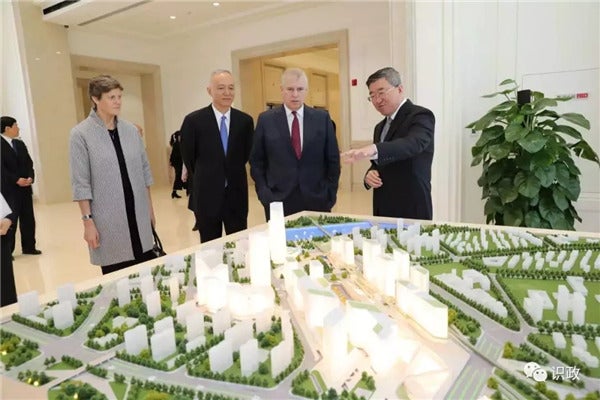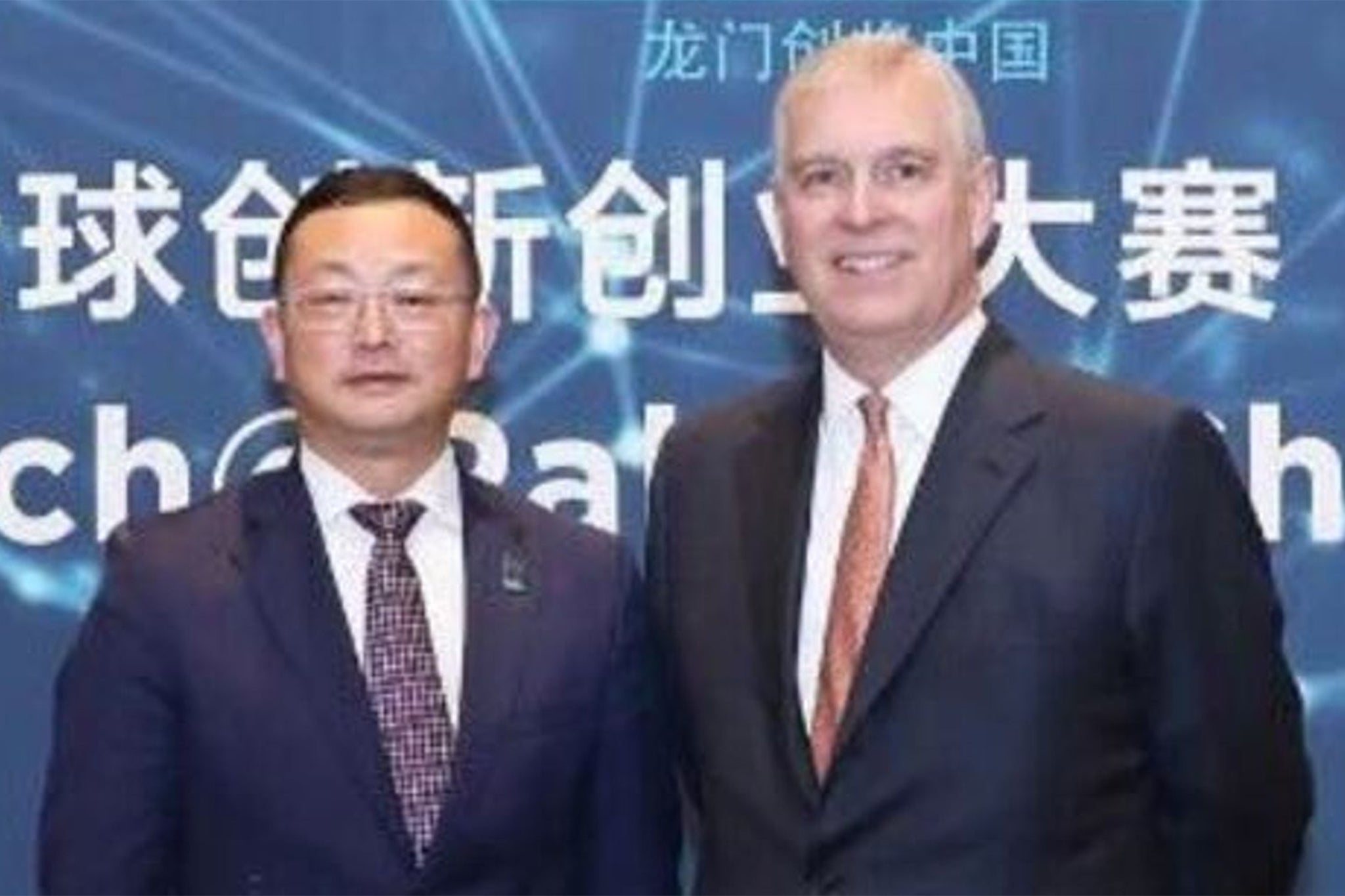Prince Andrew met a senior Beijing official at the heart of the China spy scandal at least three times, according to reports.
The Duke of York held meetings in 2018 and 2019 with Cai Qi, currently the first-ranked member of the Secretariat of the Chinese Communist Party (CCP) and de facto chief of staff to Xi Jinping.
The Crown Prosecution Service (CPS) dropped charges against suspected spies Christopher Berry and Christopher Cash last month, citing a lack of evidence; both have denied any wrongdoing.
Before the charges were dropped, Mr Cai was suspected of being the recipient of sensitive information allegedly passed to China by the two British nationals who were accused of spying for Beijing.
Prince Andrew met the senior CCP figure at least three times, according to The Telegraph, in both London and Beijing during the time period when Mr Berry and Mr Cash were allegedly recruited for espionage.
Chinese state media reports reveal that the Duke was among the British officials that met Mr Cai and the Beijing delegation in May 2018, alongside then-Labour leader Jeremy Corbyn, Scottish former first minister Nicola Sturgeon, ex-Cabinet Office minister David Lidington, and London Mayor Sadiq Khan.

British officials in attendance said that cooperation between the two countries had huge potential, amid talks of a “golden era” of British-Chinese relations.
Some weeks later, Prince Andrew travelled to China to launch a boot camp for his Pitch@Palace business initiative at Peking University and expressed a desire to help Chinese businesses get access to the global market, state media reported at the time. A meeting allegedly took place between the Duke and Mr Cai, as well as other senior CCP members in 2018, where he expressed hopes to boost Sino-British cooperation in technology, according to The Telegraph.
The Duke returned to China in April 2019, where he brought Pitch@Palace to Shenzhen, south China’s Guangdong Province. He reportedly met with Mr Cai again, The Telegraph reported, with the pair saying that “jointly building a ‘golden era’ in China-UK relations has become a consensus among the two governments.”
This isn’t the first time the Prince’s links to China have drawn attention, as he faced criticism for his friendship with alleged spy Yang Tengbo in December. Mr Yang was detained under the Counter-Terrorism and Border Security Act in 2021 where correspondence was found on his digital devices that implied he was working for the United Front Work Department – a shadowy arm of the Chinese Communist Party – which led him to be barred from the UK.
Mr Yang appealed to the Special Immigration Appeals Commission, which dismissed his appeal and made his case public. The judgement cited evidence provided by the Home Office alleging Mr Yang was a close confidant of the Prince, acting on his behalf with investors in China.
Information about the Duke’s links to China comes as the government and CPS face growing pressure to explain why the Chinese spying case collapsed as the head of MI5, Sir Ken McCallum, said he was “frustrated” by the move.

MPs have demanded that CPS chief Stephen Parkinson provide “a fuller explanation for the dropping of charges”, which he blamed on insufficient evidence that China represented a threat to the UK at the time of the alleged offences.
Meanwhile, Downing Street have responded to questions as to why the prime minister didn’t intervene in the case. Sir Keir Starmer’s spokesperson said: “The suggestion that the prime minister should have stepped in at this point is frankly absurd.
“If he was to do so, he would have been interfering in a case related to a previous government, a previous policy, previous legislation.”
A Chinese embassy spokesperson said the published witness statements were “rife with unfounded accusations against China”.
The Independent has approached the Duke of York for comment.







